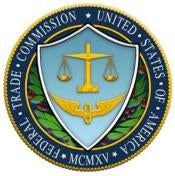The Federal Trade Commission (FTC), the nation's consumer protection agency, collects fraud reports about companies, business practices, identity theft, and episodes of violence in the media.
The mission of the FTC is to prevent business practices that are anticompetitive or deceptive or unfair to consumers; to enhance informed consumer choice and public understanding of the competitive process, and to accomplish this without unduly burdening legitimate business activity. We are proud to serve the American public in pursuit of these goals.
The FTC is the only federal agency with both consumer protection and competition jurisdiction in broad sectors of the economy. The FTC pursues vigorous and effective law enforcement; advances consumers’ interests by sharing its expertise with federal and state legislatures and U.S. and international government agencies; develops policy and research tools through hearings, workshops, and conferences; and creates practical and plain-language educational programs for consumers and businesses in a global marketplace with constantly changing technologies. FTC’s work is performed by the Bureaus of Consumer Protection, Competition and Economics. That work is aided by the Office of General Counsel and eight regional offices.
Bureaus of the Federal Trade Commission
The Bureau of Competition seeks to prevent anticompetitive mergers and other anticompetitive business practices in the marketplace. By enforcing the antitrust laws, the Bureau promotes competition and protects consumers' freedom to choose goods and services in an open marketplace at a price and quality that fit their needs.
The Bureau of Consumer Protection's mandate is to protect consumers against unfair, deceptive or fraudulent practices. The Bureau enforces a variety of consumer protection laws enacted by Congress, as well as trade regulation rules issued by the Commission. Its actions include individual company and industry-wide investigations, administrative and federal court litigation, rulemaking proceedings, and consumer and business education. In addition, the Bureau contributes to the Commission's on-going efforts to inform Congress and other government entities of the impact that proposed actions could have on consumers.
The Bureau of Economics helps the FTC evaluate the economic impact of its actions. To do so, the Bureau provides economic analysis and support to antitrust and consumer protection investigations and rulemaking. It also analyzes the impact of government regulation on competition and consumers and provides Congress, the Executive Branch and the public with economic analysis of market processes as they relate to antitrust, consumer protection, and regulation.



